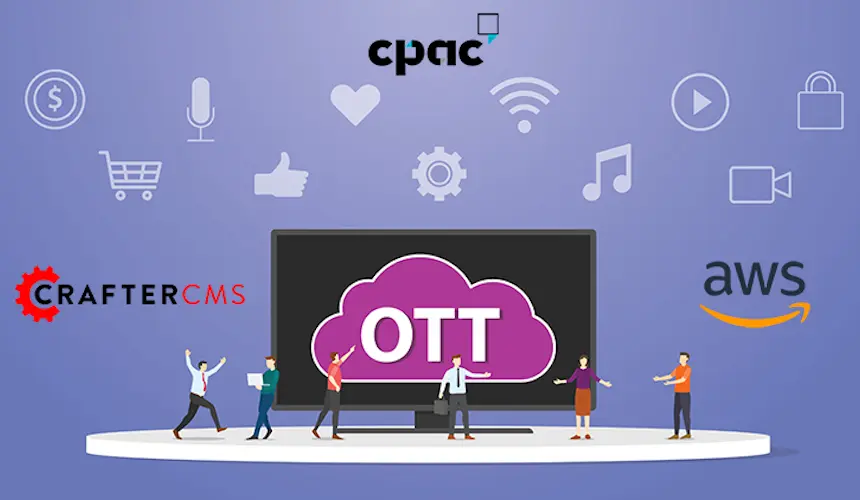Localization CMS: How Localization Boosts ROI For Global Businesses

Amanda Jones

In order to stand out in today’s fast-paced and crowded digital world, businesses are increasingly looking to tailor their content to cater to their audience in different regions and markets around the globe.
Large, global enterprises in particular have recognized that using a cookie cutter approach to produce content won’t fit the bill any longer. Instead they must localize their content to match the languages and cultural nuances of different demographics. For instance, with over 50% of the internet users in the world in Asia, customers there represent a valuable market opportunity, but won’t necessarily respond the same to those in North America or Europe.
Localization has long been considered a challenging and potentially expensive endeavor but with the help of a localization CMS, it can provide a tremendous revenue boost for global enterprises.
What Is Localization?
Localization is the process of configuring a product or service to meet the specific language and cultural needs of a target population. In the case of content assets and digital experiences, many often associate localization with translations.
While language translation is a major component of any localization strategy, that isn’t the only thing that should be adjusted. Other aspects of content that can be used to localize content include:
- Local date and time stamps
- Local images and cultural sensitivities
- Currencies
- Geographic references and national holidays
- Locally relevant tone of content
What Is a Localization CMS?
A localization CMS allows you to create and modify content so that it will be acceptable by local audiences outside of your home market. With a localization CMS you can account for cultural and linguistic differences between different countries, regions and demographics and create content that resonates with each group.
How Global Businesses Can Benefit From Localization
Localization is a multi-faceted investment that has proven to come with fruitful outcomes. Following are some of the many ways global businesses can benefit from localization:
Global Business Identity
Creating a brand image with an international audience requires global businesses to establish relevant and meaningful connections with its customers. Localization allows brands to communicate with customers in their language of choice. This emotional connection quickly turns into customer loyalty, enabling your business to globalize and profit from operations around the globe.
Improved SEO Ranking
A localized website is the key for a brand to become more visible in the top search engines by customers in different locations. A higher search engine ranking will also correlate to an increase in traffic. Since localized content is relatable to a larger demographic, it will lead to increased engagement, reduced bounce rates and more conversions.
Competitive Edge in the Market
A global business is usually competing in two markets, the international and local market. Localization makes a global business stand out among its international competitors. Additionally, competition against local businesses can be leveled by gaining more customer trust with an effective localization strategy.
Faster Time-to-Market
Localization technologies, like a localization CMS can reduce complex and time-consumption associated with language translation. Global businesses can now reach their international audience faster than ever with the right localization strategies and tools. A faster time-to-market effectively translates to faster revenue generation.
Key Features Necessary for a Localization CMS
A localization CMS is crucial to achieving many of the benefits that localization can provide, particularly for the bottom line. Some of the features that brands should consider when assessing a localization CMS include:
Multilingual Content Management
Managing content in multiple languages is not only about content translation. A localization CMS must be able to customize content based on the lingual and cultural requirements of a region.
APIs for Integrations
A localization CMS needs to enable seamless integrations to additional tools and systems. For example a translation management system (TMS) can streamline localization experience. However, other tools such as analytics, eCommerce platforms and more are essential to a localization strategy.
XML-Based Content Storage
Content translation is accelerated when the content is stored in XML format. Localization efforts are more suited to standardized XML files than traditional database-centric content storage.
Omnichannel Content Delivery
Customers from different regions have varying preferences of content delivery channels. An essential component of a localization CMS are APIs for omnichannel content delivery that can deliver content to mobile apps, tablets, and other smart devices. For example, users in China often use different social media platforms and even different smart devices than their counterparts in other regions.
User-Friendly Content Authoring Tools
Marketers are responsible for creating most campaigns targeting different audiences. To help them do this effectively, a localization CMS should provide user-friendly authoring tools such as WYSIWYG editing and content previews.
Personalization and Experimentation Features
A CMS is responsible for just content and not necessarily running various experiments. However, a localization CMS should enable users to create different segments and personas so that they can test how different audiences respond to content.
CrafterCMS: A Localization CMS For Your Global Strategy
With localization becoming integral to global businesses, it is becoming increasingly important for them to develop smart localization strategies. These strategies will guide them on their localization journey from using the right localization CMS to integrating the right localization tools. Competent localization is the key to gaining audience trust and increasing business growth and revenue.
CrafterCMS is a headless CMS that provides everything businesses need to get their content localization strategy right. With its headless architecture separating the frontend user experience from the backend API-first content delivery platform, content can be delivered to multiple channels to create an omnichannel strategy. Additionally, CrafterCMS offers REST APIs, GraphQL, and more to make app development easy, and integrations with additional localization tools a straightforward process for developers.
CrafterCMS seamlessly stores both original and translated content in XML files in its underlying Git repository, offering easy management of high quality translations without requiring complex format conversions between the CMS and language translation services. In the end, you can deliver multilingual content easier and faster with CrafterCMS.
See how you can leverage the power of a localization-friendly, headless CMS to create digital experiences by reading our White Paper: Building and Optimizing Multi-Channel Digital Experiences.
Related Posts

Headless CMS for QSR: Powering Digital-First Quick Service Restaurants

Amanda Jones

From HTML Template to Fully Managed Experience in Minutes: CrafterCMS + AI-Powered Workflows

Sara Williams

How Should You Structure a Blog Post So AI Models Actually Cite It?

Amanda Jones

Websites Are Dead?

Mike Vertal
Related Resources
-

CrafterCMS at eBay: The Universal Content Platform for eBay.com
Webcast
-

Personalized Digital Experiences for a Cruise Liner
Webcast
-

Modernizing Video Delivery and Content Management at CPAC, A Canadian Nationwide Broadcaster
Webcast
-

How to Migrate from Contentful to CrafterCMS
Tutorial
-

Partner Solution: Live Video and Conferencing for Digital Events
Webcast





